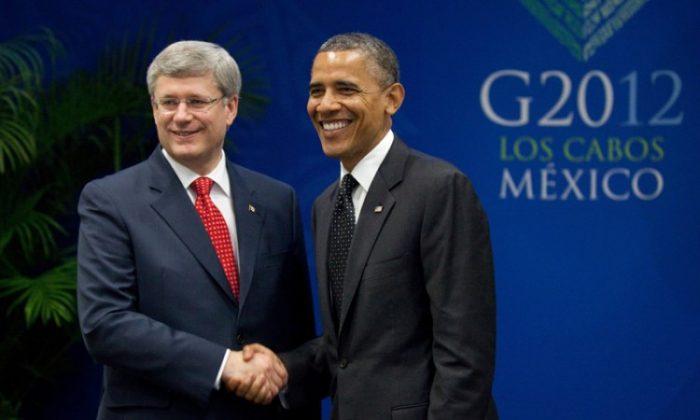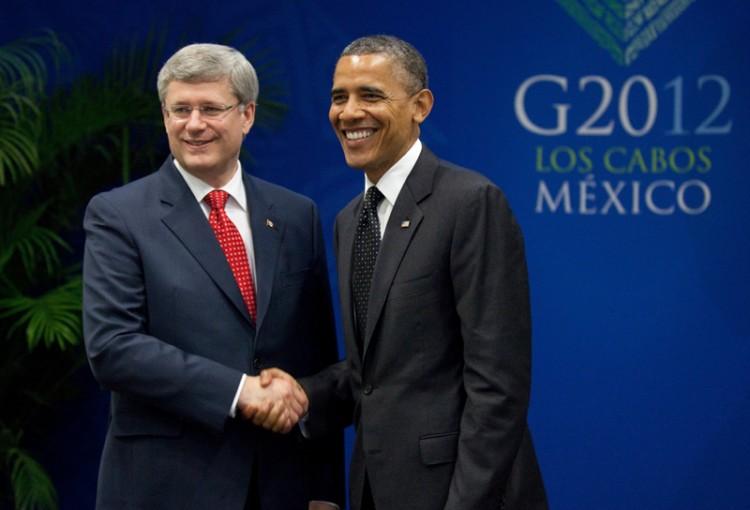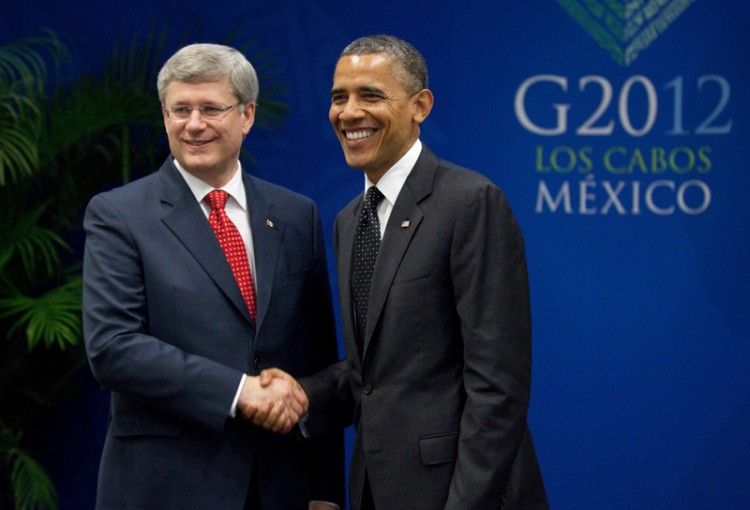Canada has joined talks to form a massive trade agreement spanning nine other countries with a total GDP of over $20 trillion, but opposition parties are worried a final deal will come at the expense of special protections for eggs, poultry, and dairy.
Canada’s supply management system protects domestic producers of some agricultural products with high tariffs to ward off U.S. imports that farmers believe would otherwise overwhelm the market. The system also limits domestic production to ensure over-production doesn’t flood the market and bottom-out prices.
Prime Minister Stephen Harper and U.S. President Barack Obama issued a joint statement Tuesday welcoming the decision to allow Canada to enter negotiations for the Trans-Pacific Partnership (TPP), which includes Australia, Brunei Darussalam, Chile, Malaysia, New Zealand, Peru, Singapore, the United States, and Vietnam.
The agreement seeks to liberalize trade by removing tariffs and other trade barriers while also taking measures to protect intellectual property. The Tories’ effort to fast-track a new copyright act through Parliament was seen as a critical element to joining the discussions.
In a statement released Tuesday, the U.S. Chamber of Commerce said the new act showed Canada’s readiness to join the TPP.
The chamber also said it was important that Canada and Mexico join the talks so the highly integrated NAFTA-enabled supply chain that sees companies produce parts of products in all three countries remains competitive on a global scale.
The joint statement from the U.S. and Canadian leaders also highlighted how closely entwined the two countries are.
“The United States and Canada welcome the TPP as an opportunity to further build upon this already dynamic trading relationship and create new opportunities for our businesses, consumers, farmers, ranchers, and manufacturers across the Asia-Pacific region,” it reads.
But internal government memos obtained by the National Post highlight that during the months-long effort to get Canada at the negotiating table, Ottawa has been prepared to discuss any issue and make possibly controversial concessions to be part of the agreement.
That has opposition MPs worried supply management could be sacrificed. The program is seen as politically untouchable.
“Supply management is vital—not just to farmers or rural communities, but to all Canadians. It is both a buy-local program and a key to Canada’s food security and food sovereignty,” said Liberal Agriculture critic Frank Valeriote.
The government has remained vague on whether supply management is on the table, asserting its continued support for supply management and noting that past agreements were made without sacrificing the system.
However, other countries participating in the TPP view the system as protectionist and will apply pressure to see supply management dismantled.
The Epoch Times publishes in 35 countries and in 19 languages. Subscribe to our e-newsletter.








Friends Read Free